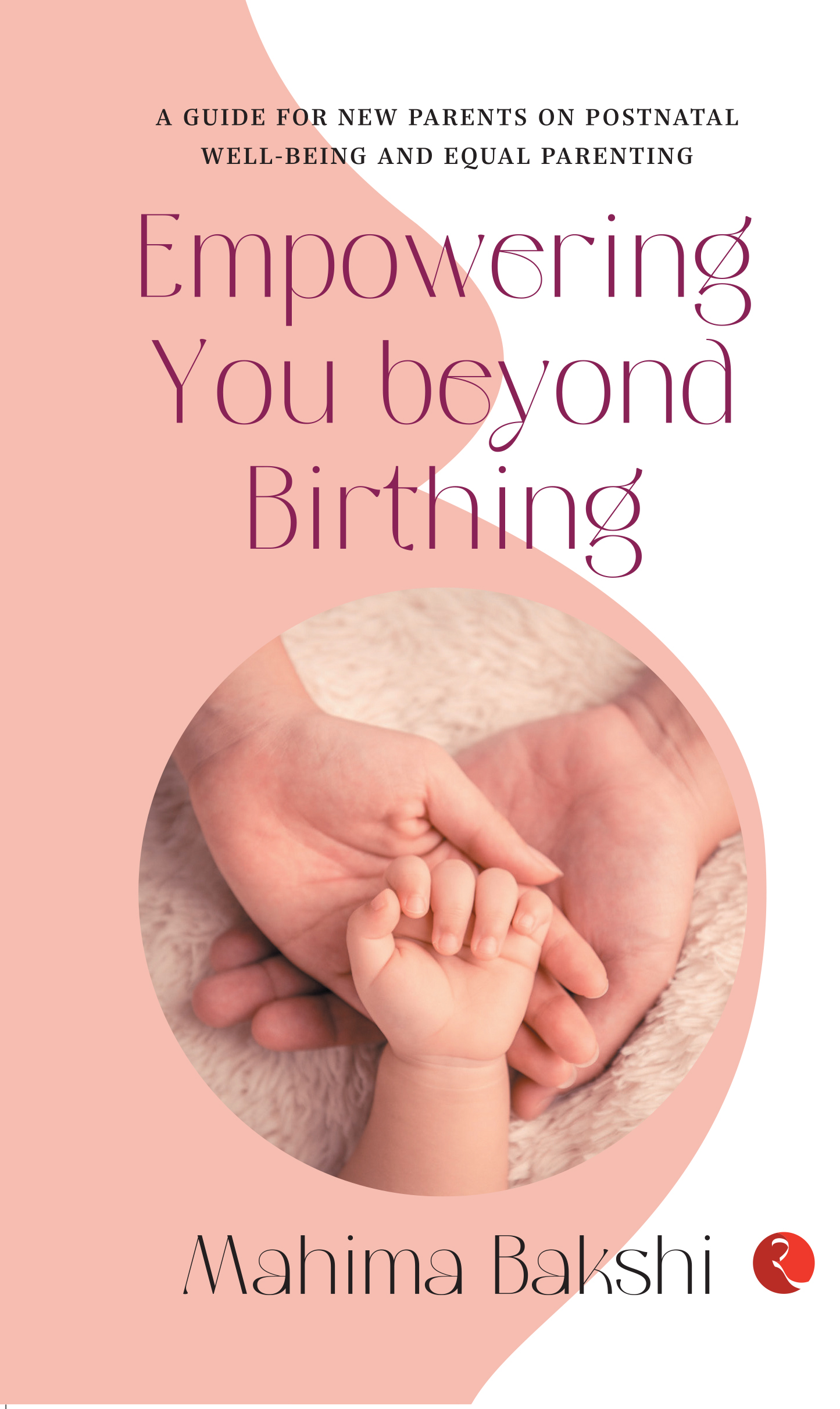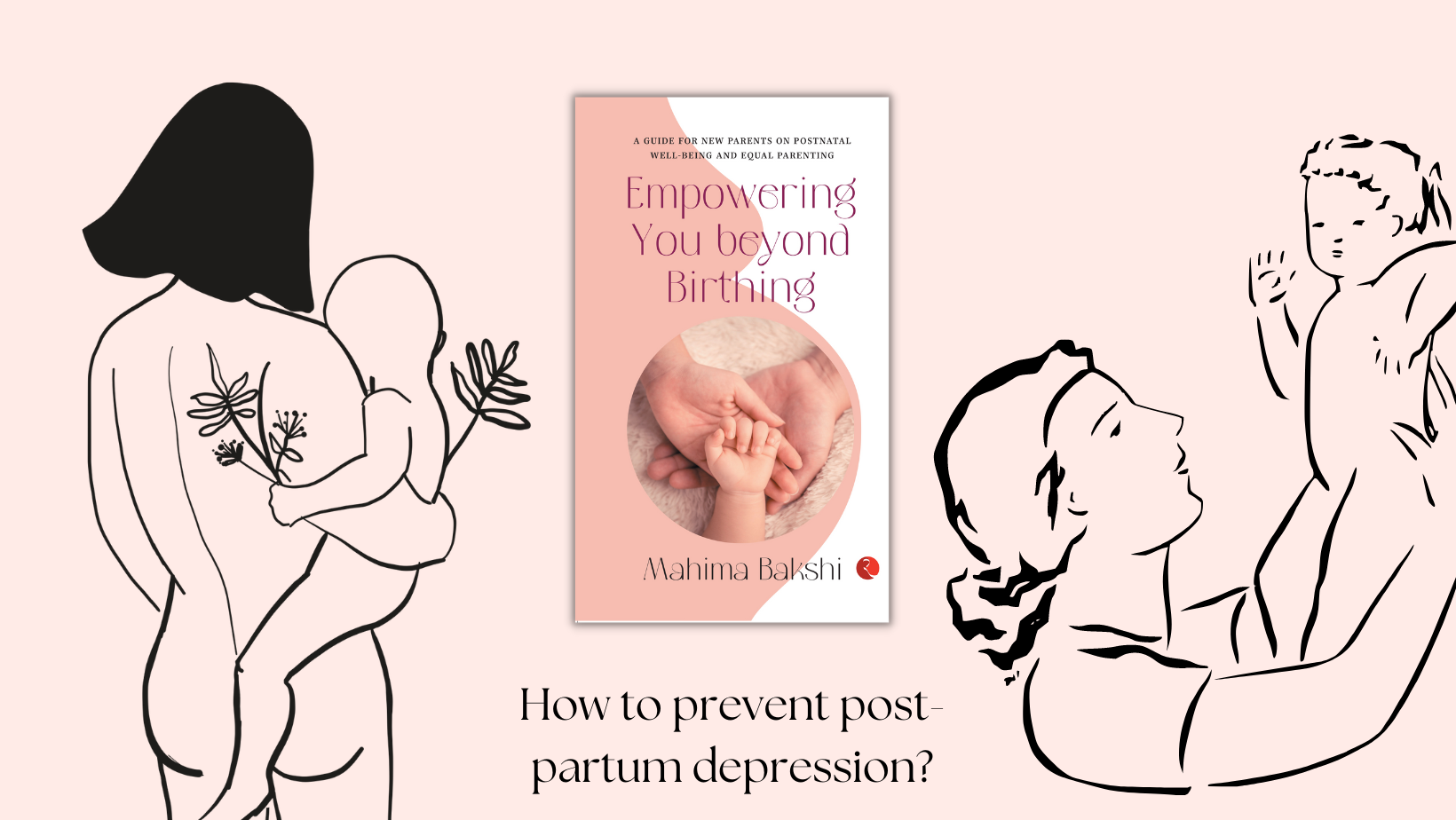Preventing Post-Partum Depression | World Mental Health Day | Empowering You Beyond Birthing by Mahima Bakshi
Prevent Post-Partum Depression by following these tips by Dr Mahima Bakshi

Post-partum depression can dampen a woman’s happiness and excitement of becoming a new mother. Its severity can vary from case to case. It can also affect the way she takes care of her baby and can lead to worse consequences if not treated on time. The first three months after delivery is just like another trimester in which the mother is in constant need of care, concern and affection. Most of the times, the family’s attention gets shifted to the baby, overlooking the mother’s needs. It should be understood that she is still undergoing physical and mental changes.
Happy Mommies, Happy Babies We all must ensure that we constantly create awareness to help mothers identify post-partum depression on time. They should be able to talk about it comfortably. We need to break the stigma around a woman being depressed after becoming a mother. As a woman delivers and enters motherhood, she experiences a lack of sleep and an outburst of emotions. She might experience maternity blues in the early days post delivery and that only goes away with time once the hormones settle down. However, if the feeling does not go away, then she should see an expert and get ruled out for post-partum depression.Women who have been depressed in the past could be at higher risk of developing post-partum depression. Talking about it is very important to help her get over it. Most of the time, women feel that they will be judged if they reveal they have been suffering from post-partum depression. Thanks to the many celebrities coming out in public and talking about their depression journey, it has actually made a change in society. Communication is imperative for good mental health. Sadly, many of us, despite being surrounded by numerous people around us, hardly have anyone who would actually listen to us. This is the reason why many people end up suppressing their emotions. New mothers can join support groups, where they can get someone who would not only listen to them but also empathize with them, becoming a strong support system. If you are a new mother, follow these nine postnatal tips for good mental and physical health.
1. Physical support: Ask for as much physical support you need, be it for taking care of the baby or yourself or the household chores. If you have a joint family, you can discuss and make a plan in advance on who will be supporting you and how. If you have a nuclear family, you may choose to call over your mother or mother-in-law to stay with you for the first few weeks till the time you settle down. If no one, you could keep a caretaker, who has experience in taking care of babies and new mothers. Convenience and comfort are what you need.
2. Appreciate yourself: You should feel appreciated and be told that you are doing great. Every time you look at yourself in the mirror, please tell yourself that you are doing amazingly well as a new mother and that you would stay committed to your well-being and that of your baby no matter how hard it gets. Partners need to support their wife by constantly encouraging and reminding her that she is doing a great job.
3. Some pampering: Try giving incentives to yourself. Every time you add a pack of diapers to your cart, also buy something for yourself. This will boost your happy hormones.
4. Good nutrition: Give good attention to what you eat and don’t go on living on mere daliya and khichdi. I have seen many families discouraging new mothers from drinking plain water, fearing it bloats the stomach. Instead, talk to your doctor, consult a good dietician and follow a healthy diet chart. I tell my patients to eat and enjoy everything to boost happy hormones as long as the food to be consumed is cooked at home, is fresh and not spicy. Of course, alcohol should be avoided.
5. Avoid house arrest: Many families follow the practice of not allowing the new mother to step out of the house for the first 40 days and only visits to the doctor is allowed. Talk to your partner and ask him to support you when it comes to you going to your parents’ house or meeting friends for a quick tea or lunch. The two of you could also go to a nearby café for some change of scene. Of course, you should avoid going somewhere far or be away for long hours in the initial days as the body is still trying to adapt to the new sleep cycle and the new routines involving you and the baby.
6. Don’t hesitate in seeking help: Many women suffer from post-partum depression. If you feel you are suffering from any symptoms of the same, then seek help from a professional at the right time. Let your doctor help you out.
7. Postnatal exercises: Take out time for your postnatal exercises. You doctor can teach you simple stretches, back exercises, neck exercises, leg exercises and shoulder curls with arms raises. They will not just help you maintain blood circulation but also correct your posture, prevent backache and boost the level of endorphins in the body, hence making you happy. Plus, it will also help in toning your body.
8. Postnatal massages: As your sleep cycle would get disturbed and you would have to adapt to your baby’s sleep cycles, postnatal massages would act as a lifesaver. It would help your body and mind get relaxed, and make you feel lighter. Followed by a hot shower and a cup of chamomile tea would become your most favourite routine of the day and one that you would start looking forward to. You deserve this.
9. Dress comfortably and wear colourful clothes: Fill your wardrobe with clothes that allow you to easily nurse your baby. Don’t shy away from wearing bright colours every now and then. Put on some make-up if you want to and take selfies with your baby.
Let every day be a celebration of motherhood. Make memories with your husband and your baby as you transition to the new phase of your life. Follow the nine tips for postnatal well-being after completing your nine months of pregnancy. These will not just boost your happy hormones. but also help you stay in touch with your own self and not let you lose your individuality after you become a mother. Every woman is different and, thus, every woman needs to be cared for differently post delivery. In some cases, the mood swings could continue for a while even after giving birth. Remember to take care of your health. If you will not be in good health, how would you take care of your baby.
Want to know more? Get the book here.

